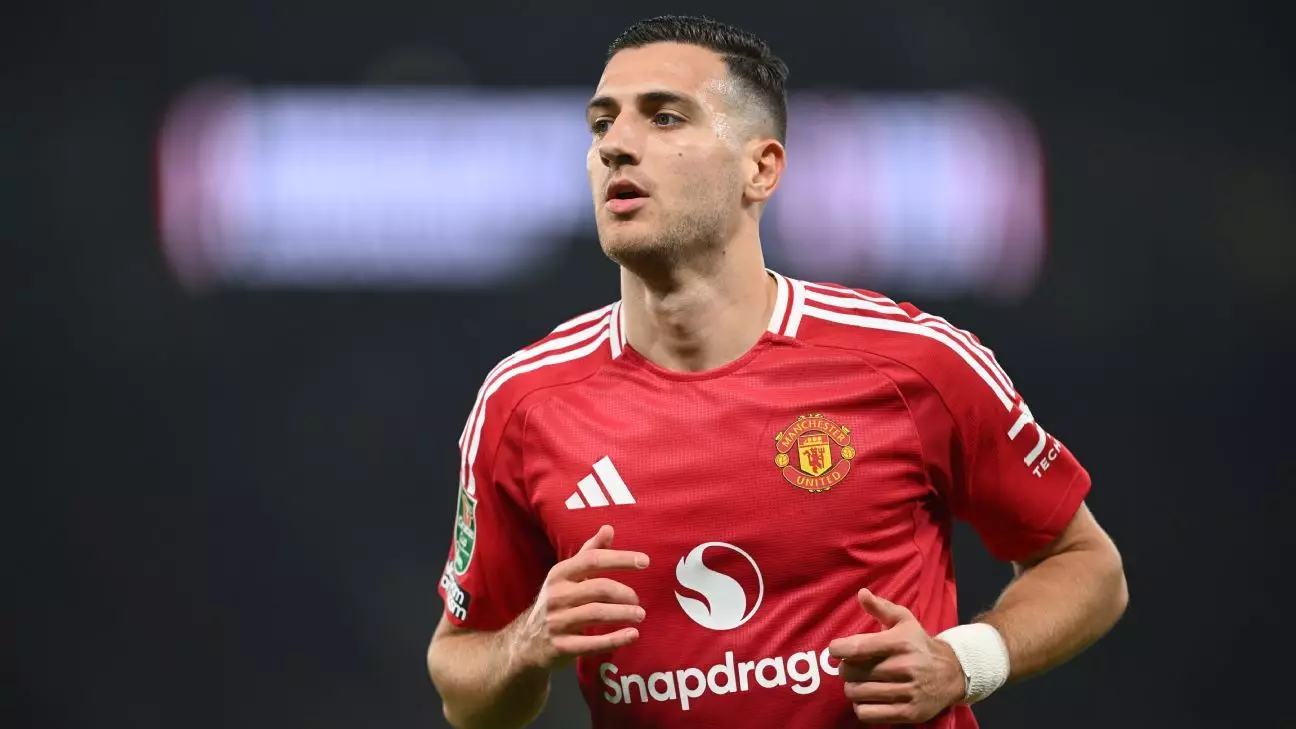The recent appointment of Rúben Amorim as Manchester United’s new head coach has sparked significant discussion among players and fans alike. Diogo Dalot, a key full-back for the club, has publicly endorsed Amorim, claiming that he is a “perfect match” for the esteemed football institution. This endorsement raises the question of whether Amorim’s profile and coaching style will indeed align harmoniously with the ambitious ethos of Manchester United, a club steeped in a rich history of success and a relentless pursuit of trophies.
Dalot’s description of Amorim as a “fantastic coach” with a youthful mentality, balanced by an unwavering clarity of vision, suggests that leadership under the 38-year-old could usher in a transformative era for the Red Devils. Amorim’s demanding nature could be what the team needs to rekindle its competitive edge. His track record at Sporting CP illustrates his ability to foster a culture of excellence—having led the club to trophy success after a lengthy drought. This ability may resonate with the existing squad’s ambitions and ultimately bridge the gap between disappointing performances and the lofty expectations that surround Manchester United.
One interesting angle presented by Dalot is the connection between Portuguese players and the Premier League. He asserts that the enduring culture of battling for recognition—rooted in Portugal’s relatively smaller footballing stature—has historically allowed Portuguese players and coaches to thrive in English football. The success stories of previous Portuguese imports could offer hope for a fruitful tenure under Amorim. However, it remains crucial for him to quickly adapt to the unique pressures that come with managing a club of Manchester United’s caliber, where the spotlight is relentless, and expectations are sky-high.
Bruno Fernandes, another prominent Portuguese figure in the squad, has echoed Dalot’s sentiments regarding Amorim’s readiness to tackle the challenges at Manchester United. His remarks about Sporting’s transformation under Amorim, where the team transitioned to consistent and attractive football, underscore the potential for similar developments at Old Trafford. He emphasizes Amorim’s success in regaining a winning culture at Sporting CP, a feat that could translate to effectively leading United back to competitive glory. Still, ensuring this transition remains seamless will demand immense strategic and psychological adaptability from both the coach and the players.
As United awaits Amorim’s official arrival on November 11, the immediate focus remains on improving their performance under interim leadership. Assistant coach Ruud van Nistelrooy must navigate a difficult start to the season as Manchester United find themselves languishing in 14th place in the Premier League. This precarious position emphasizes the need for both on-field rejuvenation and tactical ingenuity—a challenge that Amorim should be ready to address upon his introduction.
While Amorim’s hiring signals a potentially promising new direction for Manchester United, the club’s journey to reclaim their position as one of the foremost teams in both England and Europe will ultimately hinge upon the execution of a cohesive strategy that aligns player talents with a steadfast vision for success.

Leave a Reply